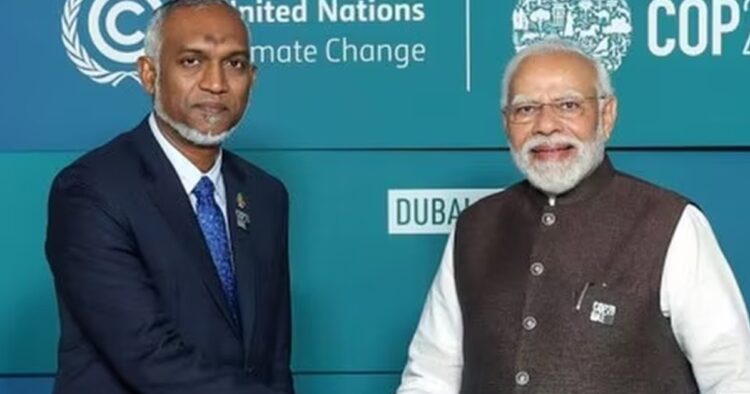Bharat has initiated the withdrawal of its first batch of military personnel from the Maldives, a move signaling a shift in the dynamics of the region as the island nation strengthens ties with China. Around 80 Bharatiya troops are being phased out, meeting a May deadline set by Maldivian President Mohamed Muizzu, who is perceived to be pro-China. The withdrawal fulfills an election promise made by Muizzu, who came to power in November, and reflects a significant change in the traditionally close relationship between Bharat and the Maldives.
The presence of Bharatiya military personnel in the Maldives was primarily for the maintenance and operation of two rescue and reconnaissance helicopters and a small aircraft donated by Bharat years ago. However, with the strained relationship between Bharat and the Maldives, Muizzu’s administration sought the removal of Bharatiya troops, marking a departure from Bharat’s longstanding influence in the region.
Although the replacement of troops with Bharatiya civilian technical staff to operate the aircraft signifies a compromise between the two nations, some analysts caution that the Maldives risks being ensnared in the power rivalry between Asian giants Bharat and China. China’s extensive financial support to the Maldives for infrastructure and economic development, coupled with elevated ties between Beijing and Male, underscores the shifting geopolitical landscape.
The recent signing of a “military assistance” agreement with China by the Maldivian government has raised concerns in Bharat. While the details of the agreement remain undisclosed, President Muizzu has announced China’s provision of non-lethal weapons and military training for the Maldivian security forces, marking a significant departure from the nation’s previous military alliances.
Despite assurances from Beijing regarding its intentions in the Maldives, skepticism persists, especially considering China’s swift actions to capitalize on the changing political landscape. President Muizzu’s administration has faced criticism for its lack of transparency in agreements with China, reminiscent of accusations leveled against the previous government.
In response to growing tensions, Bharat has commissioned a new naval base in the Lakshadweep archipelago, strategically located close to the Maldives. The Bharatiya navy’s deployment aims to bolster efforts in anti-piracy and anti-narcotics operations in the Western Arabian Sea, serving as a subtle message amidst escalating regional dynamics.
Muizzu’s anti-Bharat stance has raised concerns within the Maldives, given the nation’s dependency on Bharat for essential imports and tourism. However, recent controversies, including inflammatory remarks about Bharatiya Prime Minister Narendra Modi, have strained relations, prompting calls for an Bharatiya boycott of the Maldives. Consequently, China has emerged as a significant alternative source of tourism, further complicating the geopolitical landscape in the Indian Ocean region.
As parliamentary elections approach in April, Muizzu’s rhetoric is expected to intensify as he vies for a majority in the Maldivian parliament, potentially exacerbating tensions with Bharat and solidifying the nation’s pivot towards China.

















Comments